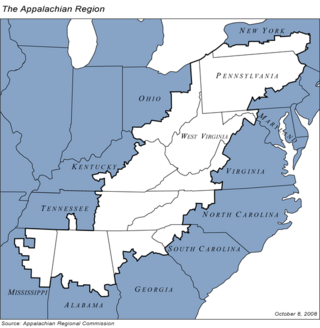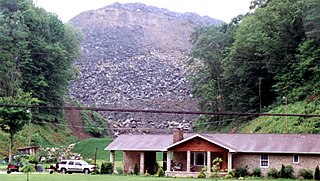Related Research Articles

Anthropology is the scientific study of humanity, concerned with human behavior, human biology, cultures, societies, and linguistics, in both the present and past, including past human species. Social anthropology studies patterns of behavior, while cultural anthropology studies cultural meaning, including norms and values. A portmanteau term sociocultural anthropology is commonly used today. Linguistic anthropology studies how language influences social life. Biological or physical anthropology studies the biological development of humans.

Discourse is a generalization of the notion of a conversation to any form of communication. Discourse is a major topic in social theory, with work spanning fields such as sociology, anthropology, continental philosophy, and discourse analysis. Following pioneering work by Michel Foucault, these fields view discourse as a system of thought, knowledge, or communication that constructs our experience of the world. Since control of discourse amounts to control of how the world is perceived, social theory often studies discourse as a window into power. Within theoretical linguistics, discourse is understood more narrowly as linguistic information exchange and was one of the major motivations for the framework of dynamic semantics, in which expressions' denotations are equated with their ability to update a discourse context.
Political anthropology is the comparative study of politics in a broad range of historical, social, and cultural settings.

Sociology of language is the study of the relations between language and society. It is closely related to the field of sociolinguistics, which focuses on the effect of society on language. One of its longest and most prolific practitioners was Joshua Fishman, who was founding editor of the International Journal of the Sociology of Language, in addition to other major contributions. The sociology of language studies society in relation to language, whereas sociolinguistics studies language in relation to society. For the former, society is the object of study, whereas, for the latter, language is the object of study. In other words, sociolinguistics studies language and how it varies based on the user's sociological background, such as gender, ethnicity, and socioeconomic class. On the other hand, sociology of language studies society and how it is impacted by language. As Trent University professor of global politics Andreas Pickel states, "religion and other symbolic systems strongly shaping social practices and shaping political orientations are examples of the social significance such languages can have." The basic idea is that language reflects, among several other things, attitudes that speakers want to exchange or that just get reflected through language use. These attitudes of the speakers are the sociologist's information.

Mountaintop removal mining (MTR), also known as mountaintop mining (MTM), is a form of surface mining at the summit or summit ridge of a mountain. Coal seams are extracted from a mountain by removing the land, or overburden, above the seams. This process is considered to be safer compared to underground mining because the coal seams are accessed from above instead of underground. In the United States, this method of coal mining is conducted in the Appalachian Mountains in the eastern United States. Explosives are used to remove up to 400 vertical feet of mountain to expose underlying coal seams. Excess rock and soil is dumped into nearby valleys, in what are called "holler fills" or "valley fills".
Mary Bucholtz is professor of linguistics at UC Santa Barbara. Bucholtz's work focuses largely on language use in the United States, and specifically on issues of language and youth; language, gender, and sexuality; African American English; and Mexican and Chicano Spanish.
Legal anthropology, also known as the anthropology of laws, is a sub-discipline of anthropology follows inter disciplinary approach which specializes in "the cross-cultural study of social ordering". The questions that Legal Anthropologists seek to answer concern how is law present in cultures? How does it manifest? How may anthropologists contribute to understandings of law?

Appalachia is a socio-economic region of the Eastern United States. Home to over 25 million people, the region includes mountainous areas of 13 states: Mississippi, Alabama, Pennsylvania, New York, Georgia, South Carolina, North Carolina, Tennessee, Virginia, Kentucky, Ohio, Maryland, as well as the entirety of West Virginia.

Ellen Contini-Morava is an anthropological linguist, interested in the meanings of linguistic forms, discourse analysis, functional linguistics and (noun) classification; in particular, in the relationship between lexicon and grammar. She specializes in Bantu languages in general, and Swahili in particular.
Frances Jane Hassler Hill was an American anthropologist and linguist who worked extensively with Native American languages of the Uto-Aztecan language family and anthropological linguistics of North American communities.
Elizabeth Mertz is a linguistic and legal anthropologist who is also a law professor at the University of Wisconsin Law School, where she teaches family law courses. She has been on the research faculty of the American Bar Foundation since 1989. She has a PhD in Anthropology from Duke University and a JD from Northwestern University. Her early research focused on language, identity and politics in Cape Breton, Nova Scotia, and her dissertation dealt with language shift in Cape Breton Scottish Gaelic, drawing on semiotic anthropology.
Susan Gal is the Mae & Sidney G. Metzl Distinguished Service Professor of Anthropology, of Linguistics, and of Social Sciences at the University of Chicago She is the author or co-author of several books and numerous articles on linguistic anthropology, gender and politics, and the social history of Eastern Europe.
Susan Lynn Ehrlich is a Canadian linguist known for her work in both language and gender, language and the law, and the intersections between them. She studies language, gender and the law, with a focus on consent and coercion in rape trials.
Donald Lawrence Brenneis is an American anthropologist and professor of anthropology at the University of California, Santa Cruz. Brenneis served as president of the American Anthropological Association (2002–2003). He became co-editor of the Annual Review of Anthropology as of 2010. He has served two terms as director of the American Council of Learned Societies.

Environmental justice and coal mining in Appalachia is the study of environmental justice – the interdisciplinary body of social science literature studying theories of the environment and justice; environmental laws, policies, and their implementations and enforcement; development and sustainability; and political ecology – in relation to coal mining in Appalachia.

Environmental issues in Appalachia, a cultural region in the Eastern United States, include long term and ongoing environmental impact from human activity, and specific incidents of environmental harm such as environmental disasters related to mining. A mountainous area with significant coal deposits, many environmental issues in the region are related to coal and gas extraction. Some extraction practices, particularly surface mining, have met significant resistance locally and at times have received international attention.
Susan Elaine Emley Keefe is an American anthropologist and author. She is a professor emerita at Appalachian State University. Keefe has published books on Mexican-American culture and Appalachian health issues.
Ayşe Gül Altınay is a Turkish academic working in the disciplines of anthropology, cultural studies, and gender studies, focusing especially on militarism, violence, and memory. She is a professor of anthropology at Sabancı University and director of the university's Gender and Women's Studies Center of Excellence. Altınay stated that "the main question that shapes my work and my life" is "Are we going to turn our pain into more violence, hate, pain and injustice, or into steps that multiply life, beauty, love, peace and justice?" She is a signatory of the Academics for Peace petition "We will not be party to this crime!" and advocates a peaceful resolution of the Kurdish-Turkish conflict.
Dr. Vasudha Vasanti Dhagamwar (1940-2014) was a lawyer, scholar, researcher, writer and an activist. She was the Founder Director of Multiple Action Research Group (MARG), and was one of the four signatories of the Mathura Open Letter to the Supreme Court of India in 1979 in regard to the Mathura rape case, which helped spark a national movement against sexual violence in India.
References
- 1 2 "Susan F. Hirsch". Jimmy and Rosalynn Carter School for Peace and Conflict Resolution. Retrieved 2023-11-04.
- ↑ Hirsch, Susan-Eve; Coutin, Susan (1999). "From The Editors". PoLAR: Political and Legal Anthropology Review. 22 (2): vii–viii. doi:10.1525/pol.1999.22.2.vii.
- ↑ "Election Results". American Anthropological Association. 2007. Archived from the original on 2014-08-08. Retrieved 2014-08-05.
- ↑ Susan F. Hirsch (1998). Pronouncing and Persevering: Gender and the Discourses of Disputing in an African Islamic Court. University of Chicago Press. Reviews:
- John R. Bowen, "Law and Social Norms in the Comparative Study of Islam", American Anthropologist, JSTOR 681843
- Allan Christelow, Africa: Journal of the International African Institute, JSTOR 1160825
- Barbara M. Cooper, "Swahili-Speaking Women in Court", The Journal of African History, JSTOR 183649
- Anne Griffiths, "Remaking Law: Gender, Ethnography, and Legal Discourse", Law & Society Review, JSTOR 3185411
- Anne Hellum, "Human Rights and Gender Relations in Postcolonial Africa: Options and Limits for the Subjects of Legal Pluralism", Law & Social Inquiry, JSTOR 828993
- Katherine E. Hoffman, Journal of Linguistic Anthropology, JSTOR 4169039
- Joel Kuipers, Political and Legal Anthropology Review, JSTOR 24510876
- Beverly B. Mack, African Studies Review, JSTOR 525024
- William P. Murphy, The Journal of the Royal Anthropological Institute, JSTOR 3134502
- David Samuels, Discourse & Society, JSTOR 42888371
- Beverly Stoeltje, American Ethnologist, JSTOR 647322
- Joan Vincent, The International Journal of African Historical Studies, JSTOR 220471
- ↑ Susan F. Hirsch (2006). In the Moment of Greatest Calamity: Terrorism, Grief, and a Victim's Quest for Justice. Princeton University Press. Reviews:
- ↑ "Awards". Law & Society Association. Retrieved 2023-11-04.
- ↑ Susan F. Hirsch and E. Franklin Dukes (2014). Mountaintop Mining in Appalachia: Understanding Stakeholders and Change in Environmental Conflict. Ohio University Press. Reviews: